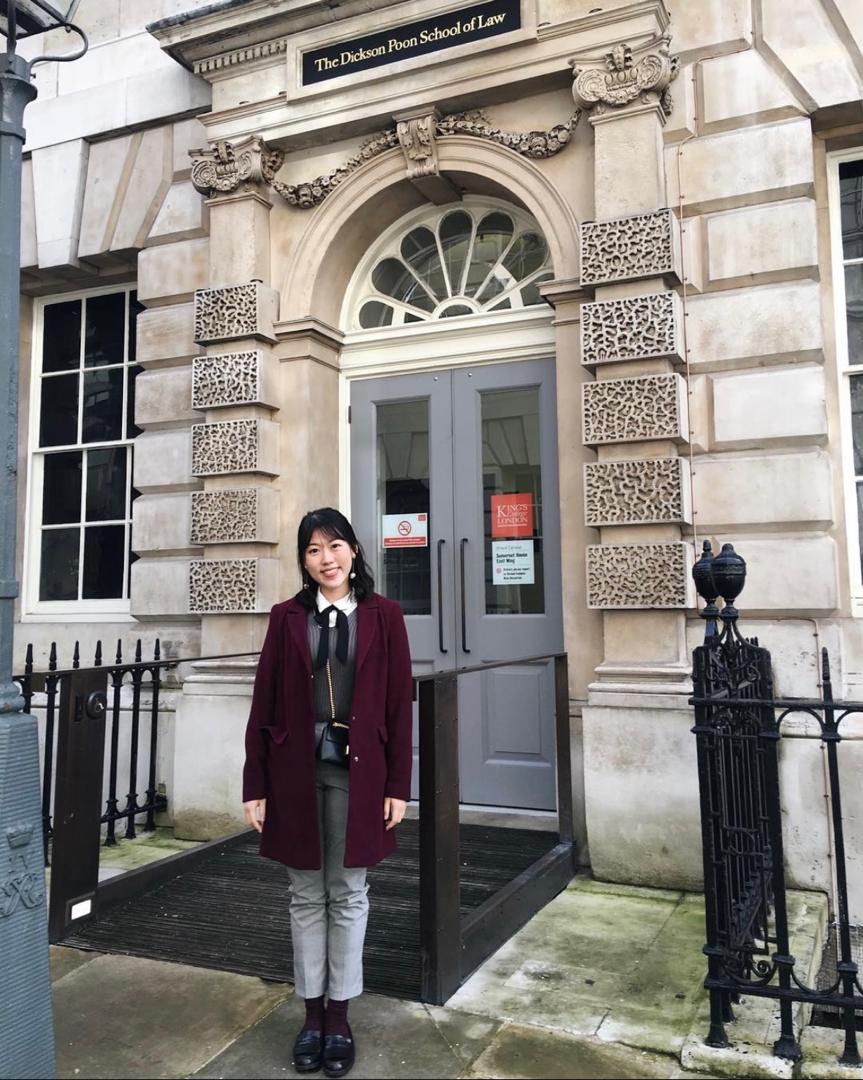Studying Law in Malaysia: Every Pathway You Need to Know

Munirah Ahmad Niza
October 29, 2025
Before you argue your first case, let’s build your case for law school! If you're thinking of studying law, here’s your complete guide to every route to the courtroom.
- Choose between local law degrees (like MMU) or UK law degrees (like BAC’s University of London 3+0).
- CLP exam + 9-month pupillage are key steps before becoming a licensed lawyer.
- Law graduates can specialise later in corporate, criminal, civil law and more!
- A law degree builds critical thinking, communication and leadership skills that open doors beyond legal practice.
Ever watched Suits and imagined yourself arguing like Harvey Specter? Or maybe you’ve binged How to Get Away With Murder and thought, “Wow, I could totally pull that off!”
The truth is, being a lawyer in real life isn’t always as glamorous as on TV. But one thing’s for sure: it’s just as powerful a career.

In Malaysia, law remains one of the most respected and in-demand professions. As of June 2024, there are 23,645 legal practitioners in Malaysia (Malaysian Bar).
If you’ve ever been curious about what it really takes to become a lawyer in Malaysia, you’re in the right place.
In this article, we’ll present the evidence on:
- Why you should study law
- The different study pathways in Malaysia
- Local vs International Degree
- Accreditations and licensing
__
Why You Should Study Law
- High Demand for Lawyers in Malaysia: The legal industry is expanding into tech law, environmental law, energy regulation and international arbitration.
- Diverse Career Pathways: A law degree opens doors beyond the courtroom, from corporate advisory and banking to NGOs, education and politics.
- Financially Rewarding: Starting salaries range from RM3,000 to RM5,000, with senior lawyers and partners earning six-figure incomes annually.
Top Specialisations in the Industry
- Criminal law
- Corporate law
- Constitutional law
- Intellectual property
- Family law
💡Specialisation comes after law school: once you’ve passed the CLP and completed pupillage. The type of firm and cases you handle will shape whether you go into corporate, criminal, etc.
👉 Check out our full career guide to see what life as a lawyer is really like!
__
The Different Study Pathways in Malaysia
1. Local Private Universities
Local private universities in Malaysia offer full undergraduate law programmes (LLB), usually spanning 3–4 years.
These degrees are accredited by the Legal Profession Qualifying Board (LPQB), making them recognised for legal practice in Malaysia and the Certificate in Legal Practice (CLP).

- Multimedia University - Bachelor of Law (Hons.)
MMU law graduates (from the 2009/2010 intake onwards) are exempt from the CLP, providing a direct route to pupillage.
- Taylor’s University - Bachelor of Laws (Hons.)
Offers a unique mix of Malaysian and UK law with credit transfer options to partner universities such as Cardiff, Leeds, Liverpool, and Reading.
- Brickfields Asia College (BAC) - Bachelor of Laws, LLB (Hons.) 3+0
Known as Malaysia’s “Law School of Choice,” BAC offers the University of London (UOL) External LLB, the only 3+0 law programme in Malaysia recognised by both the MOHE and LPQB.
Developed by leading UK colleges, it delivers the same rigorous standards as in the UK through the University of London’s Virtual Learning Environment (VLE).
According to Reuben De Rozario, Director of Laws at BAC, “The UOL Law degree combines world-class education with BAC’s local support, giving students the best of both worlds: global exposure and strong academic guidance.”
With access to UOL’s 15 million-strong alumni network, graduates gain an internationally respected qualification and worldwide career connections.

👉See more unis, compare tuition fees & programme structures here!
2. Foreign Branch Campuses in Malaysia
Some international universities have established branch campuses in Malaysia, offering the opportunity to pursue globally recognised law degrees at a lower cost compared to studying overseas (translation: saving you tons of money!💵🙌).
These programmes are recognised both internationally and by the LPQB for the CLP.
- University of Reading Malaysia - Bachelor of Laws (LL.B)
Study the same LL.B offered in the UK campus, right here in Iskandar Puteri, Johor.
👉 See more unis, compare tuition fees & programme structures here!
__
Local vs International Law Degree
When it comes to studying law in Malaysia, students today have the flexibility to choose between homegrown Malaysian law programmes and UK law degrees offered locally. But what are these experiences really like?
We spoke to two law graduates: Amyra Annisa Binti Farouk, a Multimedia University (MMU) alumna and Amanda Cham, a First-Class Honours graduate from the University of London (3+0 programme) at BAC.
The Malaysian Law Degree Experience
“MMU’s law degree is recognised and exempted from the CLP, which meant I could save time and start working sooner,” Amyra shared.

Guided by practicality and purpose, she knew she wanted to build her career in Malaysia, so studying local law made perfect sense.
“The syllabus was fully grounded in Malaysian law, which helped me see how the legal system operates in everyday life.”
Her experience was both challenging and rewarding, with a strong balance between theory and practice. Amyra credited MMU’s lecturers, many of whom were practising lawyers, for making lessons deeply relevant and engaging.
“One thing I really appreciated about MMU is that it gave us early exposure to real-world experience. We had our legal attachment in the second year, which was earlier than most universities. That early exposure gave me a clearer understanding of how legal work operates in practice.”
For students planning to work locally, Amyra believes a Malaysian law degree offers a strong and practical head start.
The UK Law Degree Experience (3+0 Pathway)
“The University of London 3+0 programme offered the opportunity to earn a globally recognised UK degree at a fraction of the cost, while staying close to home,” explained Amanda.

Amanda also described the curriculum as rigorous and rewarding. Her days often involved long study hours and intense preparation, but the experience built her discipline, critical thinking and analytical skills.
“The 3+0 pathway shaped not just my education but my mindset, which taught me analytical thinking, precision, and the ability to digest complex information — skills that are invaluable in any career.”
Amanda believes the biggest advantage of the UK law degree pathway is its value and versatility.
“I was fortunate to have very dedicated lecturers — both in the UK and at BAC — who went the extra mile to guide me. Their support, along with a well-structured curriculum and access to excellent study resources, made a substantial difference.”
It’s a pathway that offers a globally recognised degree while building resilience and independence.
__
Accreditation and Licensing
Getting a law degree is just the first step.
But to practice as a lawyer in Malaysia, your degree must be recognised by the Legal Profession Qualifying Board (LPQB) to determine whether it qualifies you as a “qualified person” eligible to enter the legal profession.
Suppose you study at a private university or overseas. In that case, you’ll need to pass the Certificate in Legal Practice (CLP) before you can move on to pupillage and be admitted as an advocate & solicitor, unless your programme is specifically exempted (like MMU’s LLB).

📜List of universities recognised by the LPQB, eligible to sit for the CLP.
📜List of universities & qualifications that entitle one as a Qualified Person (CLP-exempt).
What is the Certificate in Legal Practice (CLP)?
The CLP is a compulsory professional qualifying exam administered by the LPQB.
It’s designed to ensure law graduates have the practical and procedural knowledge required to practice law in Malaysia.
Subjects covered:
- General Paper, Professional Practice, Evidence, Criminal Procedure, Civil Procedure.
How it works:
- The exam consists of five papers, all of which must be passed in one single sitting.
- The exam is conducted once a year, and candidates are allowed up to four attempts.
Historically, the CLP has a reputation for being challenging. This means you’ll need to put in serious prep and focus!
👉Entry requirements for the CLP
__
The Path After CLP
So, what happens after you pass the CLP?
1. Pupillage (Chambering):
- You’ll spend 9 months training under a qualified lawyer.
- This is where you get hands-on experience, from drafting documents and doing research to assisting in court cases.
2. Admission to the Bar:
- After pupillage, you can apply to be called to the Malaysian Bar.
- Once admitted, you officially earn the title of Advocate & Solicitor of the High Court of Malaya, meaning you’re now a full-fledged lawyer!🎉

In short, your pathway looks like this:
Law Degree (LLB) → Certificate in Legal Practice (CLP) → Pupillage (Chambering) → Admission to the Bar → Licensed Lawyer.
__
Final Notes
Every great lawyer starts somewhere, and it all begins with your first step into law school.
No matter which route you take, whether local, global, or somewhere in between, you’ll need grit, curiosity and a sharp mind to make your case.
So pick your path, bring your best arguments, and get ready to turn that passion for justice into power moves. 🧑⚖️✨


